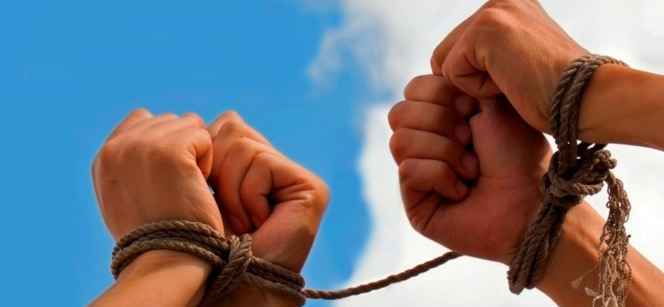


Accessibility tools
Service tools
Language selector
Navigation path
Left navigation
Additional tools
15 April 2013.
Published in Svenska Dagbladet (SE), Huffington Post (FR) and others

The deadline has passed for the implementation of new, stronger EU laws in the fight against human trafficking. However, these laws have so far not been put in place by the vast majority of EU countries. New figures released today show that the number of trafficking victims is increasing, but fewer traffickers are being convicted, writes EU Commissioner Cecilia Malmström.
During my time as EU Commissioner, I have seen a significant shift occur in the fight against the slavery of our times, trafficking in human beings. We have now started to focus on and truly discuss this issue. Only a few years ago, many leading politicians in Europe acted as though the problem did not exist, or at least did not exist in their country. I was told that only "certain women" became victims, or that human trafficking was mainly just a problem in countries neighbouring the EU. European decision-makers have since understood the true extent of the slave trade. They have come to grasp that men, women and children are sold as commodities within and across the borders of Europe, and that increased international cooperation is the only way to crack down on the organised crime groups who control this despicable trade.
Ever so often, we see reports in the media and elsewhere about police raids on hidden brothels, or on building sites and farms where victims are either locked-in at night or too scared to attempt escape. We have seen signs of organised crime gangs advancing their positions, as demand for the services they offer has increased in Europe in parallel with the worsening economic crisis.
Now we can say with certainty that the situation has deteriorated. According to a new report presented by the European Commission today, the number of confirmed and presumed trafficking victims increased between 2009 and 2010, from 7800 to 9 500 persons, in the EU as a whole. The number of unrecorded cases is also thought to be substantial.
Despite this increase, only a few of the countries of the EU have implemented the new and stronger EU legal framework for addressing trafficking in human beings, even though it was agreed by all member states back in 2011. No more than five out of the 27 EU Member States – the Czech Republic, Finland, Hungary, Latvia, Poland and Sweden – have reported to the European Commission that they have fully implemented these new laws into national legislation. The deadline passed on April 6, after a two-year grace period. It is high time for Member States to stop dragging their feet.
With the new legislation, courts all over Europe will judge crimes relating to human trafficking as equally severe, and EU countries are obliged to provide proper support to victims. Putting a new legislative framework in place was my first undertaking as EU Commissioner, since there were very divergent laws in Member States. Trading people was only punished by very short prison sentences in some countries. Now, since we have agreed to step up the punishment and give better support to those affected, it is time for member states to deliver.
If in doubt, decision makers should take a look at today's statistics from the European Commission, the first overview of its kind. The report consists of data from a range of authorities in each country – police, prosecutors, border staff and labour inspectors, to name a few – as well as from civil society organisations working on victim support. The results show that almost seven out of ten trafficking victims in Europe are women, 17 percent are men and 15 percent are children. 61 percent come from countries within the EU, most frequently Romania and Bulgaria, with Nigeria and China as the most common country of origin outside the Union. 62 percent of victims are sold for sexual exploitation, and 25 percent are sold into forced labour and 14 percent for other forms of exploitation, such as forced begging and removal of organs.
A further daunting fact from the report is that the number of traffickers convicted of their crimes is shrinking. In 2008, 1534 people were convicted of trafficking in human beings in Europe. Two years later, that number had shrunk by almost two hundred convictions. As a bright spot, however, it can be noted that more victims from outside the EU are no longer simply sent back to their home countries. There was a 70 percent increase in the number of residence permits issued to victims of trafficking between 2008 and 2010.
At present, a lot of work is being done at EU level to get to the root of the problem. An increasing number of joint investigations are being carried out between Member States and EU law enforcement bodies Europol and Eurojust. We are focusing EU funding on research into how this trade affects the most vulnerable victims, such as children. Later this year, the European Commission will set up a Europe-wide platform of civil society organisations working with victims.
However, more needs to be done. Each EU country must start by implementing the new EU trafficking legislation, and prioritize investigations and legal action against these crimes. That would be a loud and clear signal to victims that we will not let their suffering continue.
Cecilia Malmström
EU Commissioner for Home Affairs